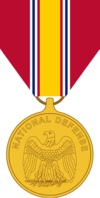Erneido Oliva
Erneido Oliva | |
|---|---|
| Birth name | Erneido Andres Oliva Gonzalez |
| Born | June 20, 1932 Baltimore, Maryland, U.S. |
| Allegiance | United States of America |
| Service/ | District of Columbia National Guard Cuban Revolutionary Army |
| Years of service | 1951–1993 |
| Rank | Major General (DCNG) (1992) Brigadier General of the Line (USA) (1984) MP Brigade Commanding Officer (1982) |
| Unit | District of Columbia Army National Guard (Deputy Commanding General) 82nd Airborne Division Assault Brigade 2506 –Bay of Pigs Invasion (Second in Command) |
| Battles/wars | Dominican Republic Intervention |
| Awards | Legion Of Merit Medal (1OL) Army Meritorious Service Medal (4OL) Army Commendation Medal (1OL) Army Achievement Medal (1OL) Army National Guard Achievement Medal (4OL) National Defense Service Medal Armed Forces Expeditionary Medal Humanitarian Service Medal Armed Forces Reserve Medal DCNG Distinguished Service Medal (1OL) Combat Infantry Badge Senior Parachute Badge |
Erneido Andres Oliva Gonzalez (June 20, 1932 – January 30, 2020)Cuban-American who was the deputy commander of Brigade 2506 land forces in the abortive Bay of Pigs Invasion of Cuba in April 1961.
Biography
In 1954 Oliva was commissioned as a second lieutenant in the
C-54 aircraft to San José, Guatemala to perform guerrilla training that later became conventional.[2]
Oliva was appointed deputy commander of
Playa Larga about 20 miles east of Giron. After the Brigade had ceased fighting on April 19, 1961, due to lack of air support promised by the Kennedy administration, Oliva organized all the Brigade's men that were withdrawing to Playa Giron and, with men of the 2nd and 6th battalions, tried to reach the Escambray mountains. However, Castro's air attacks forced the Brigadistas to scatter into the woods and swamps near Girón.[3]
He was captured by Cuban militia on April 23, 1961, and sentenced to 30 years in prison during a mass treason trial. Oliva was released from prison and flown to Miami on December 24, 1962, after the U.S. Government paid a ransom of $500,000 for each of the three leaders of the Brigade.
On December 29, 1962, Oliva was on stage next to the US President,
Cuban-American
personnel serving throughout the US armed forces. In 1965, he was promoted to Captain at the Pentagon by Cyrus Vance, then Secretary of Defense. The Special Army Training for the officers of Brigade 2506 was terminated by President Johnson two months after the assassination of President Kennedy. At the White House in February 1964, in the presence of the then Attorney General, Robert Kennedy, President Johnson informed Oliva of his decision to end all Cuban anti-Castro projects sponsored by the government including the one led by Oliva in the U.S. Army.
Oliva underwent infantry training at
D.C. Army National Guard. In December 1992, he was promoted to major general in the District of Columbia Army National Guard. Since retirement on January 1, 1993, Oliva has remained active in the anti-Castro effort, though largely steering clear of exile politics.[5] In 1996, he founded the private Cuban-American Military Council (CAMCO), to promote cooperation between all Cuban military veterans, whether members of the Brigade 2506, the US Army or the Cuban army under Batista or Castro. Oliva has been a member of all four. In January 2008, he was honored with the Heritage Award, a nationally recognized award of Heroes and Heritage which was presented to him by the Vice-Chairman of the Joint Chiefs of Staff. He was later appointed by President George W. Bush to serve as a member of the Board of Governors of the United States Organizations, Incorporated (USO) for a three-year term. Oliva lived with his wife, Graciela Ana Portela Avila, in the Washington Metropolitan Area. They had a daughter and a son and two grandsons.[1]
He died on January 30, 2020, aged 87, in Baltimore, Maryland.[6]
Awards and decorations
Combat Infantry Badge
|
Senior Parachutist Badge
|
 Legion of Merit, Legionnaire Degree (with one oak leaf cluster) Legion of Merit, Legionnaire Degree (with one oak leaf cluster)
|
 Meritorious Service Medal (with four oak leaf clusters) Meritorious Service Medal (with four oak leaf clusters)
|
 Commendation Medal (with one oak leaf cluster) Commendation Medal (with one oak leaf cluster)
|
 National Defense Service Medal (with one oak leaf cluster) National Defense Service Medal (with one oak leaf cluster)
|
 Armed Forces Reserve Medal Armed Forces Reserve Medal
|
| Army Reserve Good Conduct Medal (with four oak leaf clusters) |
Army Overseas Service Ribbon
|
| District of Columbia Distinguished Service Medal (with one oak leaf cluster) |
| District of Columbia Long and Faithful Service Medal (with silver oak leaf cluster) |
| District of Columbia Community Service Ribbon (with silver oak leaf cluster) |
| District of Columbia Attendance Ribbon (with one oak leaf cluster) |
Notes
- ^ a b Bohning, Don. Miami Herald. 2000-04-16. http://www.autentico.org/oa09425.php
- ^ Johnson (1964)
- ^ Wyden (1979)
- ^ Johnson (1964), p. 32
- ^ Marquis, Christopher. Miami Herald 1998-03-29 http://www.cubanet.org/CNews/y98/mar98/30e6.htm Archived 2007-09-27 at the Wayback Machine accessed 2009-03-19
- ^ "Obituary for Erneido A. Oliva at Ruck Towson Funeral Home, Inc". www.ruckfuneral.com. Retrieved 2024-03-11.
References
- Johnson, Haynes. 1964. The Bay of Pigs: The Leaders' Story of Brigade 2506. W.W. Norton & Co Inc. New York. ISBN 0-393-04263-4
- Lynch, Grayston L. 1998. Decision for Disaster: Betrayal at the Bay of Pigs. Bassey's. Washington. ISBN 1-57488-237-6
- Rodriguez, Juan Carlos. 1999. Bay of Pigs and the CIA. Ocean Press Melbourne. ISBN 1-875284-98-2
- Wyden, Peter. 1979. Bay of Pigs – The Untold Story. Simon and Schuster. New York. ISBN 978-0-671-24006-6
